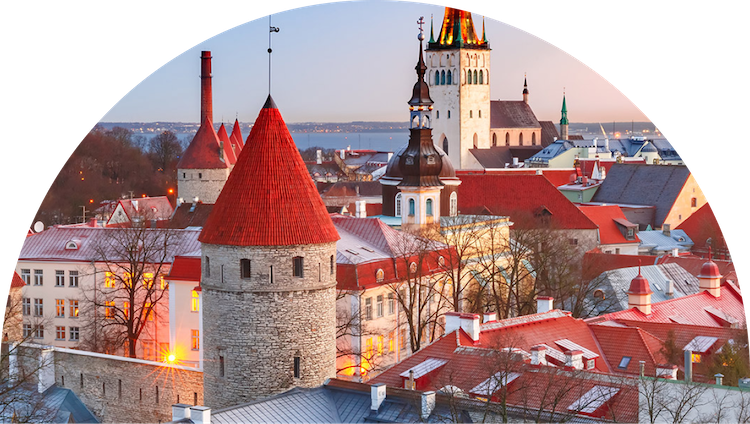国旗
货币
€ (EUR)
爱沙尼亚是波罗的海三国中最北端的国家。令人惊讶的是,爱沙尼亚语与拉脱维亚语或立陶宛语无关,也不是像俄语这样的斯拉夫语。它唯一的近亲是芬兰人,匈牙利人是更远的亲属。爱沙尼亚在1991年苏联解体后获得独立,于2004年加入欧盟,并于2010年采用欧元,这是第一个这样做的前苏联国家。爱沙尼亚的经济严重依赖贸易。其最大的出口产品是机械和电气设备、木材和木制成品以及家具。货运和客运,尤其是俄罗斯和欧洲之间的货运和客运,也是经济的重要组成部分,旅游业正在增长,在大多数年份,爱沙尼亚的游客人数超过了该国的人口。爱沙尼亚还是 IT 领域的领导者,被称为欧洲的硅谷。2005年,爱沙尼亚成为世界上第一个在全国大选中进行在线投票的国家。



